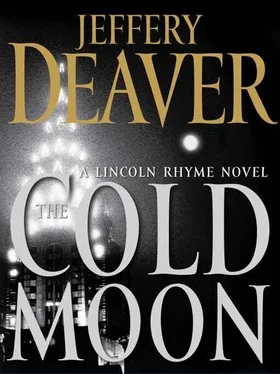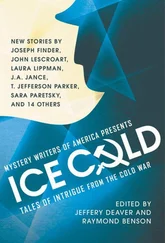Financial records, spreadsheet, references to millions of dollars.
Checking logo on documents, sending entries to forensic accountant.
Diary re: getting oil changed, haircut appointment and going to St. James Tavern.
Analysis of ash from Queens CS lab:
Logo of software used in corporate accounting.
Forensic accountant: standard executive compensation figures.
Burned because of what they revealed, or to lead investigators off?
St. James Tavern
Creeley came here several times.
Apparently didn't use drugs while here.
Not sure whom he met with, but maybe cops from the nearby 118th Precinct of the NYPD.
Last time he was here-just before his death-he got into an argument with persons unknown.
Checked money from officers at St.
James-serial numbers are clean, but found coke and heroin. Stolen from precinct?
Not much drugs missing, only 6 or 7 oz. of pot, 4 of coke.
Unusually few organized crime cases at the 118th Precinct but no evidence of intentional stalling by officers.
Two gangs in the East Village possible but not likely suspects.
Interview with Jordan Kessler, Creeley's partner, and follow-up with wife.
Confirmed no obvious drug use.
Didn't appear to associate with criminals.
Drinking more than usual, taken up gambling; trips to Vegas and Atlantic City. Losses were large, but not significant to Creeley.
Not clear why he was depressed.
Kessler didn't recognize burned records.
Awaiting list of clients.
Kessler doesn't appear to gain by Creeley's death.
Sachs and Pulaski followed by AMG
FRANK SARKOWSKI HOMICIDE
Sarkowski was 57 years old, no police record, murdered on November 4 of this year, survived by wife and two teenage children.
Victim owned building and business in Manhattan. Business was doing maintenance for other companies and utilities.
Art Snyder was case detective.
No suspects.
Murder/robbery?
Was shot to death as part of apparent robbery. Weapon recovered on scene-Smith amp; Wesson knockoff,.38 Special, no prints, cold gun. Case detective believes it could have been a professional hit.
Business deal went bad?
Killed in Queens-not sure why he was there.
Deserted part of borough, near natural gas tanks.
File and evidence missing.
File went to 158th Precinct on/around November 28. Never returned. No indication of requesting officer.
No indication where it went in the 158th.
DI Jefferies not cooperative.
No known connection with Creeley.
No criminal record-Sarkowski or company.
Rumors-money going to cops at the 118th Precinct. Ended up someplace/someone with a Maryland connection. Baltimore mob involved?
No leads.
Sachs stared at the chart for a half hour until her head began to nod. She returned upstairs, stripped, stepped into the shower and let the hot water pulse down on her, hard, stinging, for a long time. She dried off, pulled on a T-shirt and silk boxers, and returned to the bedroom.
She climbed into bed beside Rhyme and rested her head on his chest.
"You all right?" he asked groggily.
She said nothing but reached up and kissed his cheek. Then she lay back and stared at the bedside clock as the digital numbers flipped forward. The minutes passed slowly, slowly, each one an entire long day passing, until finally, close to 3 A.M., she slept.
9:02 A.M. Wednesday
Time is the fire in which we burn.
– DELMORE SCHWARTZ

Lincoln Rhyme had been awake for more than an hour.
A young officer from the Coast Guard had delivered a jacket found floating in New York Harbor, a man's size 44. It was, the captain of the boat deduced, probably the missing victim's; both sleeves were covered in blood, the cuffs slashed.
The jacket was a Macy's house brand and contained no other trace or evidence that could lead back to the owner.
He was now alone in the bedroom with Thom, who'd just finished Rhyme's morning routine-his physical therapy exercises and what the aide delicately called "hygienic duties." (Rhyme referred to them as the "piss 'n' shit detail," though usually only when easy-to-shock visitors were present.)
Amelia Sachs now walked up the stairs and joined him. She dropped her jacket in a chair, walked past him, opened the curtains. She looked out the window, into Central Park.
The slim young man sensed immediately that something was up. "I'll go make coffee. Or toast. Or something." He vanished, closing the door behind him.
So what was this? Rhyme wondered unhappily. He'd had more than enough personal issues recently than he wanted to deal with.
Her eyes were still looking over the painful brightness of the park. He asked, "So what was this errand that was so important?"
"I stopped by Argyle Security."
Rhyme blinked and looked at her face closely. "They're the ones that called after you got written up in the Times, when we closed that case about the illusionist."
"Right."
Argyle was an international company that specialized in safeguarding corporate executives and negotiating the release of kidnapped employees-a popular crime in some foreign countries. They'd offered Sachs a job making twice what she did as a cop. And promised her a carry permit-a license for a concealed weapon-in most jurisdictions, unusual for security companies. That and the promise to send her to exotic and dangerous locations caught her interest, though she'd turned them down immediately.
"What's this all about?"
"I'm quitting, Rhyme."
"Quitting the force? Are you serious?"
She nodded. "I've pretty much decided. I want to go in a different direction. I can do good things there too. Protecting families, guarding kids. They do a lot of antiterrorist work."
Now he too stared out the window at the stark, bald trees of Central Park. He thought about his conversation with Kathryn Dance the previous day, about his early days of therapy. One doctor, a sharp, young man with the NYPD, Terry Dobyns, had told him, "Nothing lasts forever." He'd meant this about the depression he'd been experiencing.
Now the sentence meant something very different and he couldn't get the words out of his mind.
Nothing lasts forever…
"Ah."
"I think I have to, Rhyme. I have to."
"Because of your father?"
She nodded, dug her finger into her hair, scratched. Winced at that pain, or at some other.
"This's crazy, Sachs."
"I don't think I can do it anymore. Be a cop."
"It's pretty fast, don't you think?"
"I've thought about it all night. I've never thought about anything so much in my life."
"Well, keep thinking. You can't make decisions like this after you get some bad news."
"Bad news ? Everything I thought about Dad was a lie."
"Not everything," Rhyme countered. "One part of his life."
"But the most important part. That's who he was first, Rhyme. A cop."
"It was a long time ago. The Sixteenth Avenue Club was closed up when you were a baby."
"That makes him less corrupt?"
Rhyme said nothing.
"You want me to explain it, Rhyme? Like evidence? Add a few drops of reagent and look at the results? I can't. All I know is I have a really bad taste in my mouth. This's affected how I look at the whole job."
He said kindly, "It's gotta be tough. But whatever happened to him doesn't touch you. All that matters is you're a good cop, and a lot fewer cases'll be closed if you leave."
"I'll only close cases if my heart's in it. And it's not. Something's gone." She added, "Pulaski's coming along great. He's better now than I was when I started working with you."
Читать дальше













